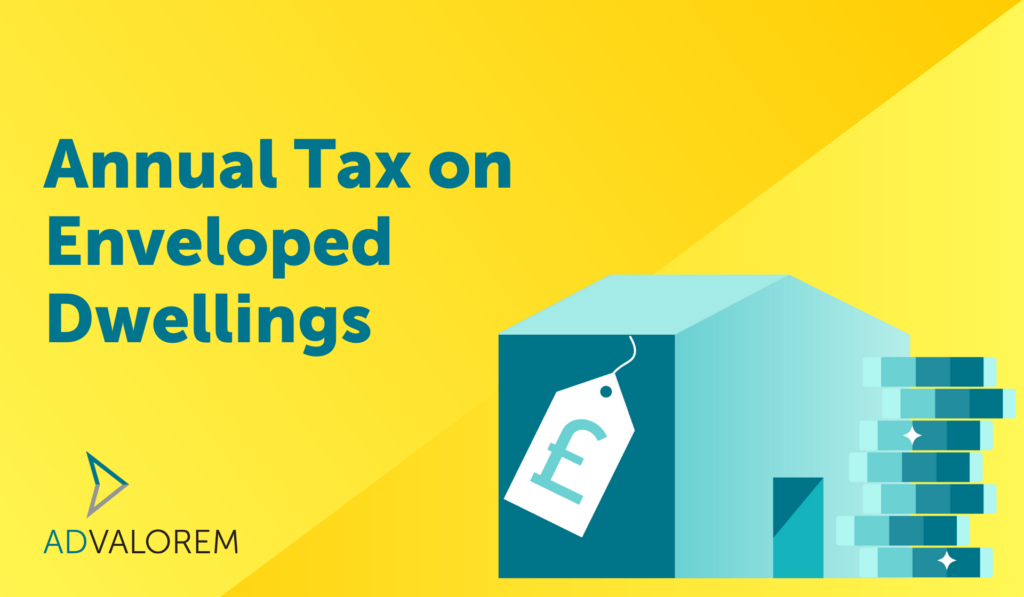
What is Annual Tax on Enveloped Dwellings (ATED)?
The ATED regime was introduced in 2013 and it targets high-value UK residential properties that are held within the following entities:
- Companies
- Partnerships with at least one corporate member
- Collective investment schemes
Those properties which fall within the ATED regime are subject to an annual property tax based on their value.
This tax does not apply to UK residential properties owned by individuals or trusts.
What is a high value property?
When the ATED regime was introduced, it only applied to residential properties valued at over £2 million. This threshold was reduced in April 2015 to £1 million and further reduced to its current threshold of £500,000.
The valuation used is the valuation at the later of:
- The last revaluation date.
- The date of acquisition.
Properties should be revalued at set “revaluation dates”, which occur every five years, to determine whether the property is caught by the ATED rules. The latest revaluation date was 1st April 2022, the next revaluation date is 1st April 2027.
If you hold a residential property in any of the above entities, you will need to have the property revalued as at 1st April 2022. This is the value which will be used for the purposes of ATED for the next five years.
Do I need to file a return?
If a residential property, held in any of the above entities, is valued at over £500,000 on 1st April 2022 you will be required to file an ATED return and pay any tax due. The next return for ATED is due by 30th April 2025 and will cover the period from 1st April 2025 – 31st March 2026, any liability is also due by 30th April.
Should you acquire a high value property you must file a return within 30 days of acquisition.
A return is due for each property on which the ATED is due.
Reliefs
There are certain reliefs that are available to reduce or eliminate the tax charge. For example, if the property is let to third parties on a commercial basis or if the property is being used by a trading business to provide living accommodation to certain qualifying employees. However, the relief is not automatic and it must be claimed by submitting a Relief Declaration Return.
Penalties
HMRC will charge late filing penalties on any returns which are filed after 30th April, even if no tax is due. HMRC will also charge penalties on late payment of the ATED liability. Both of these penalties do increase the later the return is filed and tax liabilities are paid.
Frequently asked questions:
Q: I have a portfolio of properties, none of which are valued at over £500,000, do I still need to file a return?
A: No, provided no individual property is valued at over £500,000, no return is required
Q: My company owns a share of a property worth over £500,000, but the value of its share is less than £500,000, do I still need to file a return?
A: Yes, ATED is based on the value of the property not the value of the share in the property, as such a holding of any size in a high value property will require a return.
How can Ad Valorem help?
Our team is happy to help with any ATED queries you may have, whether its determining whether your company is required to file an ATED return, checking your eligibility for ATED reliefs or filing your return.
(E) enquiries@advaloremgroup.uk (T) 01908 219100 (W) advaloremgroup.uk

